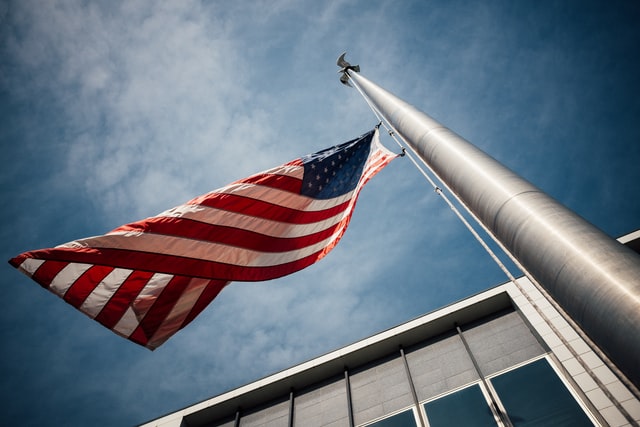
On Aug. 10, 1999, a 39-year-old Filipino postal worker was murdered, purely because he was an ethnic minority.
Joseph Ileto, the victim, was gunned down by a white assailant who had just perpetrated a shooting at the North Valley Jewish American Community Center in Granada Hills, California.
According to the shooter, he fatally shot Ileto nine times because he thought Ileto was either Latino or Asian.
Ileto’s tragic killing is among the countless Asian lives taken by the evil of racism. More than a decade before Ileto’s killing, a Chinese American man named Vincent Chin who was murdered by two white men angered at the rise of Japanese car companies in the automobile industry.
Both Ileto and Chin were killed based on false assumptions of their ethnic backgrounds, but that’s hardly the point to make, as any civil rights advocate would say.
Activists and civil rights leaders have called for unity among the Asian American and Pacific Islander (AAPI) community throughout the COVID-19 pandemic with the party line that discrimination against any individual of Asian descent is discrimination against the entire community, as previously reported in the Asian Journal.
Because of the virus’ origins in China, harassment and ostracization against anybody who appears Asian have been on the rise, and many attribute that to the language being used among public leaders.
Social media trends and the uprising of fringe, right-wing ways of thinking were amplified by President Donald Trump, whose often coarse rhetoric and stringent policies provided a credible platform for like-minded voices to come to the fore.
Famously, Trump has used the racist misnomers “kung-flu,” “the China plague,” and “Chinese virus” that members of the AAPI community have condemned for perpetuating stereotypes and myths about the virus.
The presidential campaign to elect former Vice President Joe Biden is running on the premise that a Biden presidency would work to eliminate the hateful rhetoric and cultivate a more inclusive nation.
It’s a sentiment widely embraced by the AAPI community, which historically and presently favors Democratic presidential candidates, but relying on a new national leader who promises to do away with discrimination on all fronts may not provide the reassurance folks are looking for.
Ileto was gunned down when former President Bill Clinton was in office. The tragic killings of unarmed Black minors Trayvon Martin, Michael Brown and Tamir Rice all occurred during the Obama presidency, starkly validating the fact that racism and hate crimes occur no matter who’s in office.
“Even if Joe Biden wins the presidency, these issues will not go away,” John Yang, executive director of Asian Americans Advancing Justice | AAJC, told the Asian Journal in an Oct. 9 briefing hosted by Ethnic Media Services.
“If you think about the history of Asian Americans…this is something that we’ve always faced,” Yang said, harkening back to yellow peril and policies like the 1882 Chinese Exclusion Act, incarceration of Japanese Americans in World War II and the ostracization of Arab and South Asian Americans after 9/11.
But Yang pointed out the complexity of the issue and that seemingly positive misconceptions like the model minority myth are just as harmful.
“On one level, our community has always been called the so-called model minority, that our community excels and are overrepresented in STEM fields,” Yang explained. “But that is then used as a wedge against other races like the Black and Latino communities.”
In the era of the coronavirus, Asian Americans are facing more anti-Asian hate now than in the past several years, disproving the post-racial myth.
“This is going to extend beyond Election Day, so we should not let our guard down,” Yang said, pointing out the ongoing tension between the U.S. and China and the re-emergence of white nationalism in mainstream American consciousness.
“Even if the election brings changes to the federal policymakers, or even some state policies, this issue is going to continue, [and] we need to be vigilant and talk about this,” he added.
The anti-Asian hate, as comprehensively reported in the Asian Journal, is fueled by misconceptions of COVID-19 and the Chinese community and, by stereotype-driven extension, the greater AAPI community.
Manjusha Kulkarni, executive director of the Asian Pacific Policy and Planning Council (A3PCON), mirrored Yang’s stances, noting that the public should not expect drastic changes if Biden is elected next month.
From March 19 to Aug. 5, A3PCON reported 2,583 anti-Asian-related incidents that were also related to the COVID-19 pandemic. Most of the attacks targeted Chinese and Korean Americans and involved verbal attacks and other non-physical forms of harassment. (About 9% of these attacks involved physical assault.)
Some of the more commonly known incidents involved people yelling racist epithets at Asian Americans and a middle schooler in the Valley who was brutally attacked by a bully who told him to “go back to China.”
Anti-Asian hate crimes — incidents that can be criminally charged — are usually low on yearly hate crime reporters, but that doesn’t mean those crimes don’t happen. Only about 12% of such hate crimes are ever reported, according to former FBI special agent Michael German, who spent more than a decade investigating white supremacist groups and race-related crimes.
German said that there is no robust system in American law enforcement that reports bias-related incidents. Moreover, local police departments and county sheriffs only voluntarily report data since this methodology isn’t mandated at the federal level.
And, usually, that’s to save face, German said.
“No mayor wants to be the state leader in hate crimes,” said German, who is currently a fellow at the Brennan Center for Justice’s Liberty and National Security program. “So if you’re trying to get some multinational company to build a factory [in your city] and your police commissioner comes to you and says, ‘Look at these hate crimes we’re going to report,’ you don’t want to be known as the hate crime capital of the world. So there’s a lot of good reasons why the police don’t report.”
Some legislators, however, are putting in legislative solutions to combat anti-Asian discrimination. California Senate Bill 2043 — also known as the Jabera-Heyer No Hate Act — is a statewide initiative to provide local governments incentives for reporting hate crimes and would provide grants to maintain state-run hate crime reporting hotlines.
This bill was introduced last year, but no action has since been taken on the bill.
On the federal level, the Democrat-leaning House of Representatives passed a resolution decrying anti-Asian hate crimes. (That resolution was passed along party lines.)
Kulkarni posited that the trend of anti-Asian racism due to the coronavirus will likely continue for years as the pandemic rages on with no end in sight. She pointed out that Muslim, Arab, South Asian and Sikh American communities “experienced backlash for more than 10 years, some of which continues [today].”
“We are at the 210,000 [COVID-19] fatality mark and so we believe, unfortunately, this violence is going to be with us for at least a decade,” Kulkarni said. (Klarize Medenilla/AJPress)






